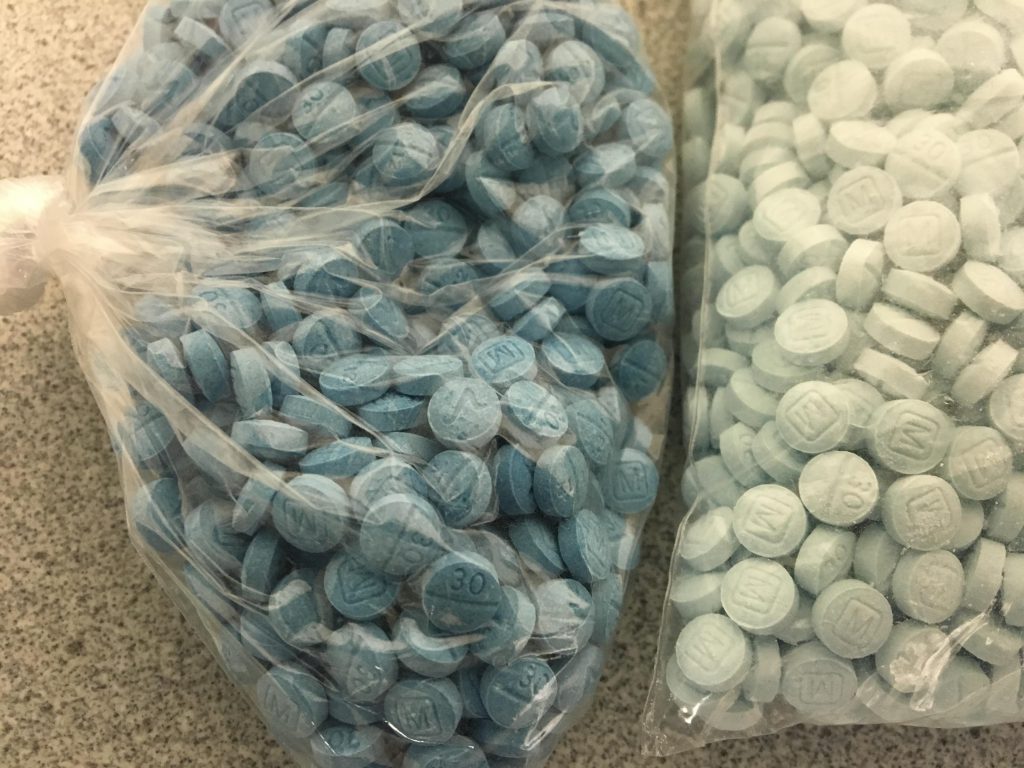On The Front Lines of Overdose Crisis
Two members of the Milwaukee Overdose Response Initiative talk about their jobs. It's not easy.
Amy Molinski, a peer support specialist with Community Medical Services, and Milwaukee firefighter Lieutenant Robert Rehberger meet a lot of people on what may be the worst — or ultimately the best — day of their life.
Their job is to make contact with people who have recently overdosed and try to give them help.
The opioid epidemic has been raging for more than a decade, but in recent years the number of overdose deaths has continued to worsen largely due to the increasing prevalence of dangerous synthetic opioids like fentanyl. In 2015, Fentanyl accounted for only 8% of all overdose deaths in the City of Milwaukee. Five years later, it would be found in approximately 73% of overdose deaths in the city. At the same time, the number of overdose deaths in Milwaukee County increased 60%.
The MORI program is composed of two teams, each with two firefighters and one peer specialist, like Molinski. Each day begins roughly the same way. First, the program supervisors, which includes Lieutenant Rehberger, look at fire department data on overdose calls from the previous day. Then the teams get in their cars and start driving the city, knocking on doors and working their way through the list.
Molinski, who is in recovery herself, explained that the MORI teams are often overcoming deep-seated distrust. “I really was led to believe all those years using and even for a long time in early recovery, that other people didn’t care about people like me, especially professional people,” she said.
Sometimes the first visit leads to treatment. But even then, navigating the system is another hurdle to clear, even for professionals like Molinski and Rehberger.
The same day they spoke with Urban Milwaukee, they had been struggling to make a placement at a treatment center.
“We’ve been working with this guy for a year,” Molinski said. “We’ve taken him to detox several times per his request.”
For the first time, he had spent more than 24 hours in detox and he wanted treatment, she said. They spent hours trying to find him a bed, asking the hospital to extend his stay until they could place him somewhere. They made 17 different calls trying to get him into treatment.
The system has programs that work, like MORI, and residential treatment centers, and medication-assisted treatment. What it doesn’t have is enough of them.
“We need more medication-assisted treatment facilities scattered throughout the city,” Molinski said. “We need more beds available for residential, and we need a process that is actually conducive to people getting well, and it’s just not there.”
The job isn’t easy. But they both said it’s worth it, especially when they follow up with people they’ve helped and witness the progress they’ve made in their life. But with nearly 700 overdose deaths in Milwaukee County last year, not every story has a happy ending.
Though Molinski and Rehberger did get a small win that day they made 17 calls. “We did seem to have a plan for our guy,” Rehberger said. “Yeah, we got him a bed,” Molinski added.
If you think stories like this are important, become a member of Urban Milwaukee and help support real, independent journalism. Plus you get some cool added benefits.
More about the Opioid Crisis
- Baldwin Demands Trump Admin Reverse Billions in Cuts From Opioid and Mental Health Programs - U.S. Sen. Tammy Baldwin - Jan 14th, 2026
- Fox Valley Nurse Practitioner Sentenced to Federal Prison for Unlawful Prescribing - U.S. Department of Justice - Dec 29th, 2025
- County Executive David Crowley Hosts Roundtable on Combating Opioid Crisis and Saving Lives in Wisconsin - David Crowley - Dec 16th, 2025
- Co-Chairs Criticize DHS For Lack of Plan, Transparency with Opioid Settlement Funds - Joint Committee on Finance - Oct 21st, 2025
- Opioid Treatment Program Opens First Clinic in Milwaukee - Isiah Holmes - Oct 20th, 2025
- County Executive Crowley, Chairwoman Nicholson Sign Legislation Approving $9 Million for Efforts to Compat the Opioid Crisis - David Crowley - Aug 15th, 2025
- How Are State’s Local Governments Spending Opioid Settlement Payouts? - Addie Costello - Aug 4th, 2025
- MKE County: How County Will Spend $9 Million in Drug Settlement Funds - Graham Kilmer - Jul 29th, 2025
- Milwaukee County Executive David Crowley Announces Over $9 Million for Initiatives to Combat Opioid Epidemic - David Crowley - Jul 17th, 2025
- AG Kaul, 45 Other Attorneys General Plan to Join $720 Million Settlement with Eight Opioid Drug Makers - Wisconsin Department of Justice - Jul 14th, 2025
Read more about Opioid Crisis here






















